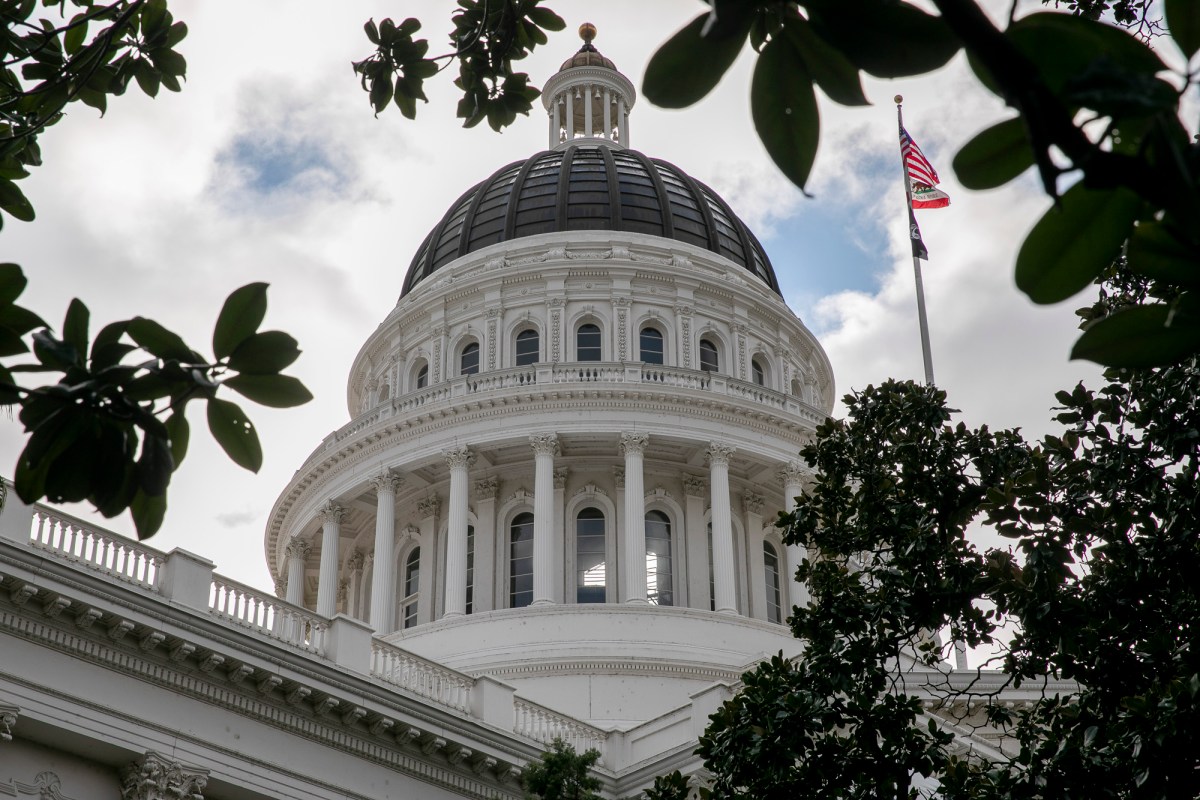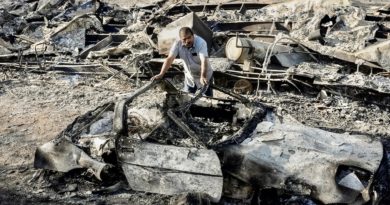Daily Business Report-Aug. 24, 2020
California State House. (Photo by Anne Wernikoff for CalMatters)
Coronavirus economic fallout sparks
more talk of taxing California’s richest
A “CEO tax” targeting San Francisco’s most unequal salaries. A signature-gathering campaign to tax Palo Alto’s millionaires. And now, a new statewide bill that would levy a yearly 0.4 percent tax on every Californian worth more than $30 million.
California is suddenly reckoning with an unusually heated debate over taxing the rich as the coronavirus’ economic impact ratchets up the gulf between those at the top of the economic ladder and those at the bottom.
As the Golden State’s billionaires saw their net worth jump by billions, more than 7.51 million Californians have filed first claims for unemployment since March and the state faces a $54 billion budget deficit.
“People are talking about it now in ways that they weren’t before in large part because of coronavirus,” said Patricia Cain, a tax law professor at Santa Clara University’s School of Law. “And there’s the discussion around Black Lives Matter that wealth in this country is so racially segregated. People are realizing that taxes is one way to make a change.”
The latest idea, introduced Thursday as the legislative session winds to a close, was proposed by Assemblyman Rob Bonta, D-Oakland, with the support of Sen. Nancy Skinner, D-Berkeley, and Assemblyman David Chiu, D-San Francisco, among others. It would raise an estimated $7.5 billion a year from California’s top 0.15 percent wealthiest residents. “The burden of this crisis should not be worn by those least able to bear it, it should be worn by those who most definitely can,” Bonta said.
The bill comes days after another proposal to raise taxes on those earning more than $1 million was tabled for the year and is the fourth statewide or Bay Area measure aimed at raising taxes on the rich. With massive unemployment payouts and other state-sponsored programs to provide relief, experts and policymakers say more money is needed.
____________________________________
A $6.6 million settlement reached in class action
lawsuit against San Diego Unified Port District
A $6.6 million settlement has been reached in a class action lawsuit against the San Diego Unified Port District claiming that the Port’s ordinance requiring rental car companies to collect from their customers and remit to the Port a $3.50 fee for each transaction on Port tidelands, was an illegal and unconstitutional tax.
The settlement class includes all persons who rented vehicles from rental car companies, with the rentals originating at locations in San Diego, on Port tidelands, from the period of May 10, 2018 to July 24, 2020, and who were assessed a $3.50 fee by the rental car companies that was then remitted to the Port.
The Port will pay $6.6 million to establish a settlement fund to provide cash payments to all Class Members who paid the $3.50 fee, as well as fees and costs consistent with the settlement agreement. Details about the benefits of the settlement are available at www.RentalCarFeeSettlement.com.
To receive a cash payment from the settlement, Class Members must submit a Claim Form either online at www.RentalCarFeeSettlement.com or by mail postmarked no later than Oct. 20, 2020. Class Members who did not receive a Claim Form by mail, and wish to mail in a Claim Form, may download one at www.RentalCarFeeSettlement.com.
____________________________________
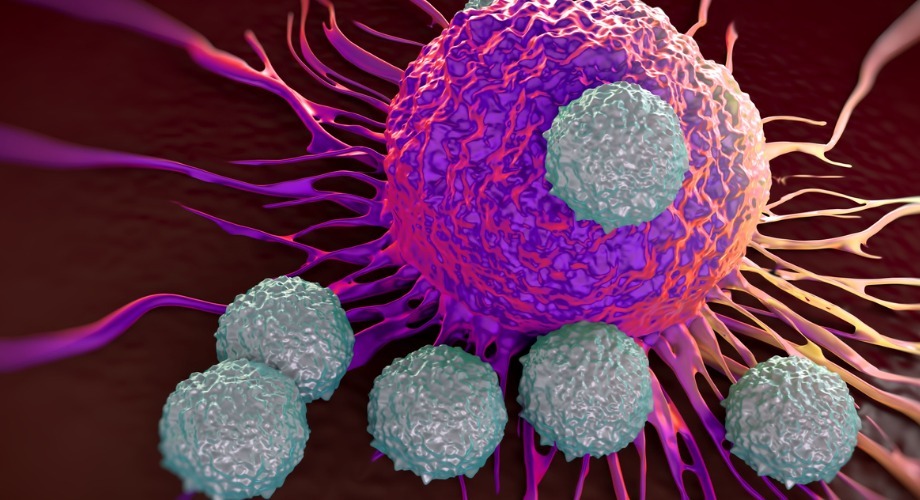
Unleashing the immune system’s
‘STING’ against cancer
Scientists at Scripps Research have discovered a molecule that can activate a natural immune-boosting protein called STING. The findings mark a key advance in the field of oncology, as the STING protein is known for its strong antitumor properties.
STING (short for STimulator of INterferon Genes) marshals the immune system against viral and cancerous invaders and, because of its role in promoting antitumor immunity, has garnered enthusiastic interest from drug developers.
However, STING’s natural activators in the body are unstable DNA-related molecules that do not last long in the bloodstream. That has hindered the development of treatments based on them, and has prompted a search for a hardier STING-activating small molecule—one that can circulate in the blood and work against tumors “systemically,” wherever they may exist in the body.
The Scripps Research scientists, who report their finding in Science on August 20, screened a set of suitable small molecules with diverse structures and identified several that activate STING. After modifying one of these molecules to optimize its properties, they found that delivering it systemically into mice with an injection greatly reduced the growth of an aggressive form of melanoma.
The discovery raises the possibility of a circulating drug that could activate STING and suppress a wide range of cancers.
____________________________________
County partners with San Diego State
for PSA campaign on COVID-19
The County of San Diego is rolling out a new set of public service announcements created by San Diego State University students to raise awareness about safety measures put in place to curb the spread of COVID-19. Students were asked to create video messages specifically targeting their peers.
The campaign comes in response to a spike in cases in young people, particularly in the 20-29 age group. One in four lab-confirmed cases in the San Diego region are in that age group.
The PSA contest invited students to submit 15- to 30-second videos, in English or Spanish, that highlight the importance of frequent hand washing, social distancing and wearing face coverings. A committee of both county and SDSU staff selected the winning videos.
Both the county and SDSU will use the winning videos on social media to promote the importance of following public health guidelines.
____________________________________

Construction begins on Downtown San Diego
bikeway project along Fourth and Fifth avenues
SANDAG construction crews broke ground last week on a series of community enhancements to add approximately 4.5 miles of separated and buffered bikeways and neighborhood safety improvements between B Street in Downtown San Diego and Washington Street in Hillcrest.
The $12.2 million project will make it more comfortable, safe, and attractive to walk, bike, drive, scoot, skip, glide, or ride other personal mobility devices in Downtown San Diego, Bankers Hill, and Hillcrest.
The project includes improvements for bike riders such as bike signals and medians to separate most of the bikeway from traffic; improvements for walkers such as new and improved crosswalks; and improvements for people with disabilities such as updated curb ramps and accessible parking.
The project also includes community-requested improvements like new lighting and landscaping and a variety of intersection treatments that will increase safety for everyone.
The new bikeways being constructed along Fourth and Fifth avenues are part of the Uptown Bikeways, a broader effort to enhance neighborhood connectivity between Uptown, Old Town, Mission Valley, Downtown San Diego, North Park, and Balboa Park.
____________________________________
LJI Professor Erica Ollmann Saphire awarded
$6.4 million for efforts to beat COVID-19
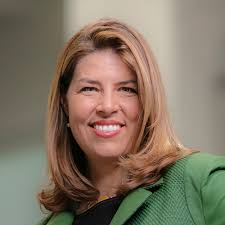
The National Institute of Allergy and Infectious Diseases (NIAID), one of the National Institutes of Health, has awarded more than $6.4 million to Erica Ollmann Saphire, Ph.D., professor at La Jolla Institute for Immunology, to support research toward COVID- 19 antibody therapeutics.
The Coronavirus Immunotherapeutic Consortium (CoVIC) is now partnered with NIAID to provide independent evaluation of antibody therapeutics as part of the federal government’s Operation Warp Speed. The funding to LJI will fuel ongoing efforts by CoVIC, led by Saphire, to analyze virus-fighting antibodies and track how the novel coronavirus may attempt to escape those antibodies.
“Most COVID-19 antibody discovery efforts focus on one half of antibody molecules—the part that anchors to SARS-CoV-2, the virus that causes COVID-19. This funding allows us to collect information about the other half of the antibody—the part that signals to the rest of the immune system the presence of the virus,” says Saphire. “New data suggest that the ability of that half to signal for immune help separates survivable cases from fatal cases of viral infection. By considering both halves of the antibody, we can gain a more complete picture of how antibodies against SARS-CoV-2 work best, and we can better choose the ones that will be most effective as therapeutics.”
____________________________________
Rear Adm. Douglas Small assumes command of
the Naval Information Warfare Systems Command
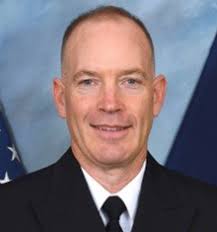
Rear Adm. Douglas Small relieved NAVWAR Commander Rear Admiral Christian Becker in a virtual change of command ceremony Friday at NAVWAR headquarters in San Diego.
Vice Chief of Naval Operations Admiral William Lescher served as the presiding officer for the change of command, attending the event virtually from the Pentagon. On behalf of the Secretary of the Navy, Lescher also presented NAVWAR with the Meritorious Unit Commendation award for impactful achievements and distinctive accomplishments made under the leadership of Becker.
Small is coming to NAVWAR from serving as the program executive officer for Integrated Warfare Systems in Washington, D.C. A native of Birchwood, Wis., Small received a Bachelor of Science in Physics degree from Marquette University in Milwaukee, and a doctorate in physics from the Naval Postgraduate School in Monterey, Calif.
Small’s operational tours included mechanical division officer and main propulsion assistant on USS Camden, combat systems officer on USS Iwo Jima and technical director of Joint Crew Composite Squadron 1 during Operation Iraqi Freedom. Small also had a number of tours in acquisition, starting at the Naval Surface Warfare Center, Dahlgren Division and then the Missile Defense Agency.
____________________________________
Mesa College announces the
Dr. Constance M. Carroll Humanities Institute
San Diego Mesa College announced the renaming of its Humanities Institute to the Dr. Constance M. Carroll Humanities Institute. The Institute, which was originally established in 1990, was generously supported by Carroll upon her appointment as president of Mesa College in 1993, as has continued to be at the forefront of work during her tenure with the San Diego Community College District. In the wake of the announcement, donations have been flooding in to support the Institute.
“We wanted to honor Dr. Carroll’s vision and commitment to the humanities, both as our past president and as our Chancellor, so it seemed most fitting to bestow her name permanently upon this program,” stated Dr. Pamela Luster, president of Mesa College.
Since it began as a campus-wide initiative in September of 1990, the Humanities Institute has supported the work of faculty and staff to bring diverse programming and events to Mesa College. The Institute serves as an internal vehicle for cultural, interdisciplinary, and Mesa College community priorities and activities are intended to increase student engagement, recruitment, and retention.
____________________________________

S.D. Women’s Week Leadership Conference Goes Global
New virtual format with no boundaries features Daymond John, Linda Cureton, Ed Smart, Amy Trask
San Diego Women’s Week, celebrating 11 years of inspiring, empowering and connecting women is now virtual with leadership events for all ages and professions. Attendees enjoy virtual networking, keynote speakers, panel discussions, and more, all wrapped around creative solutions to everyday issues affecting leaders in the workplace and in their daily lives.
WHEN: Wednesday, Aug. 26 – Friday, Aug. 28, 2020
WHO: Keynotes for 2020 Leadership conference include:
- Daymond John from Shark Tank: Powershift, Transform Any Situation, Close Any Deal, and Achieve Any Outcome.
- Linda Cureton, Former CIO – NASA: Managing and Leading in a Tough Environment.
- Ed Smart, Father of Elizabeth Smart: Two Miracles, and Standing up for Yourself.
- Amy Trask, Former NFL Team Executive – Los Angeles Raiders: Leadership Vulnerabilities.
WHERE: Wednesday – Virtual Women and Wine 6-7:30 p.m.
Friday – Virtual Leadership Conference 8:30 a.m. – 6:30 p.m.
Click here for complete list of speakers and additional details.

